It seems we can’t find what you’re looking for. Perhaps searching can help.


Tag: headless ecommerce development




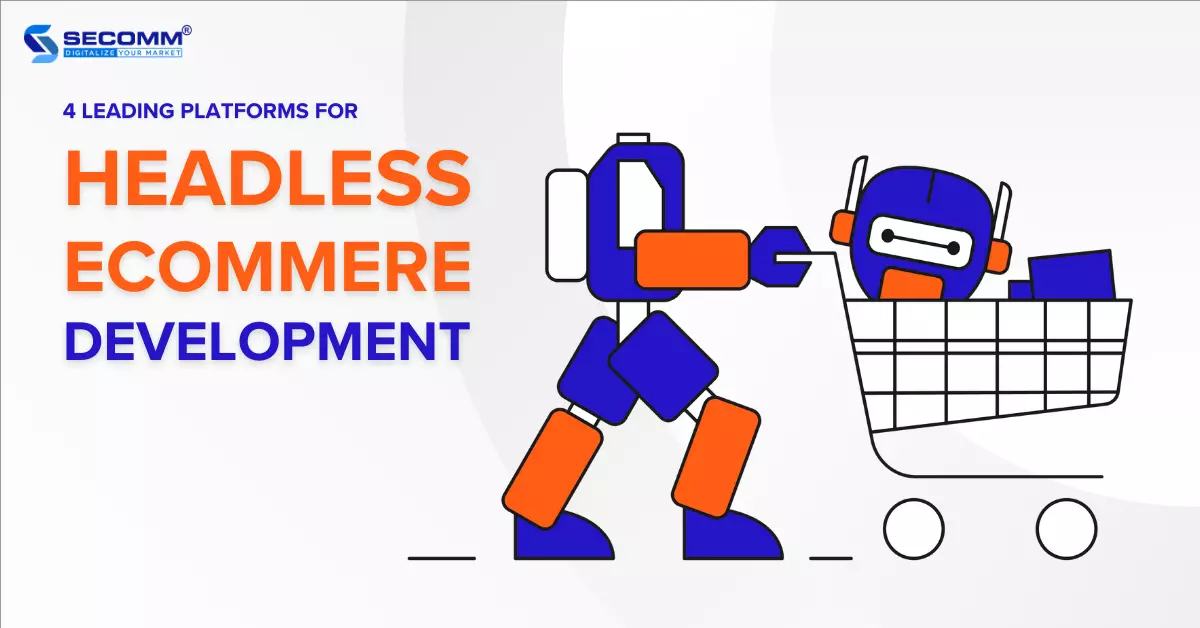
4 LEADING PLATFORMS FOR HEADLESS ECOMMERCE DEVELOPMENT
In Headless eCommerce architecture, the user interface (frontend) is separated from the business logic and database (backend), operating independently and communicating with each other through Application Programming Interfaces (APIs). The backend of the eCommerce system can be linked to multiple frontends to deliver a seamless omnichannel experience for customers.
This omnichannel capability has driven many businesses to adopt Headless eCommerce to adapt to market trends and attract a large customer base across all potential channels.
However, from the planning stage to achieving the goals, it’s a long journey with several crucial steps that require dedicated efforts from businesses. Among them, selecting the right platform for Headless eCommerce development is essential. Currently, there are four prominent platforms in the market: Adobe Commerce, Shopify Plus, BigCommerce Enterprise, and Commercetools.
This article will focus on helping you as a business make the right decision by listing the selection criteria and pros and cons of each platform.
Things to Evaluate When Choosing Headless eCommerce Platform
Headless Architecture
You need to ensure that the chosen platform supports the Headless architecture, allowing the separation of the frontend user interface from the backend system. The separation provides omnichannel capabilities, enabling you to deliver seamless and consistent customer experiences across all channels (e.g., websites, mobile devices, IoT devices, etc.).
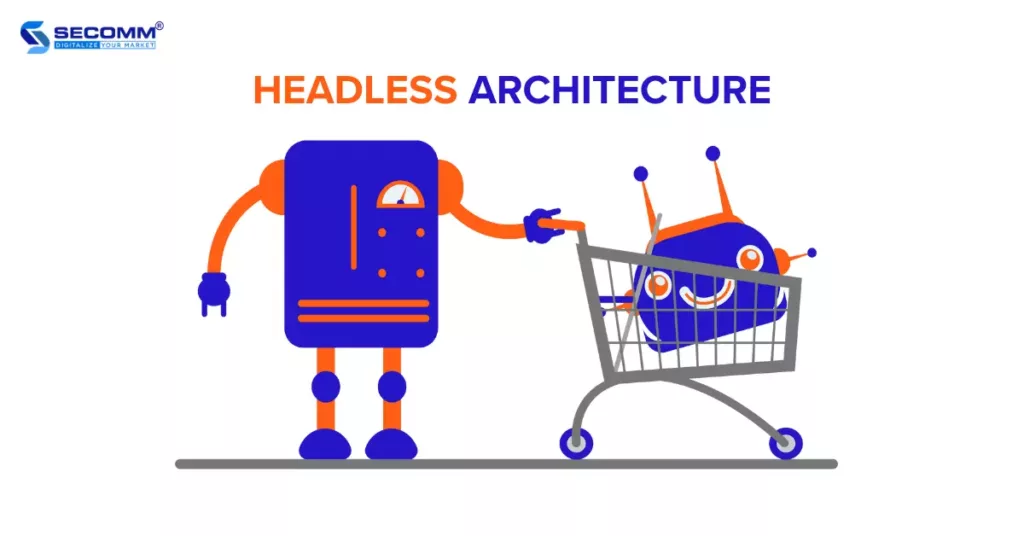
API Capabilities
APIs are crucial for integrating with various different user interfaces. Therefore, you should seek a platform with the ability to provide customizable APIs for seamless data exchange.
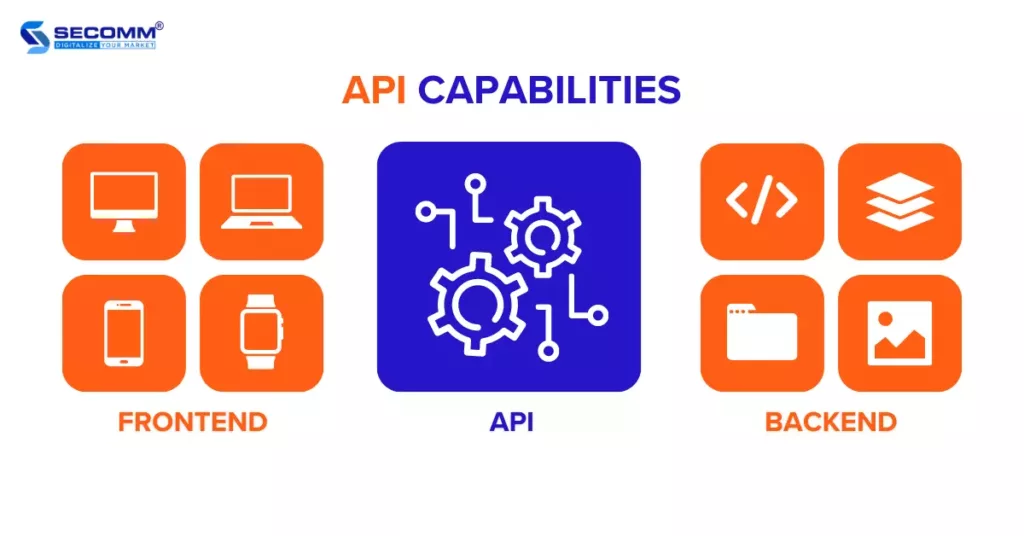
Performance & Scalability
Next, you need to consider the scalability of the platform, especially for large-scale enterprises with extensive and complex product catalogs or significant inventory management needs. A highly scalable platform can easily adjust its size based on requirements, handle high traffic, and ensure top-notch performance even during peak shopping seasons.
The ability to integrate with third-party solutions is also crucial when selecting a platform. Third-party tools serve specific business needs and drive eCommerce efficiency. You can prioritize platforms with strong integration capabilities and compatibility with a wide range of third-party tools and services, including payment gateways, shipping, content management systems (CMS), analytics tools, and more.
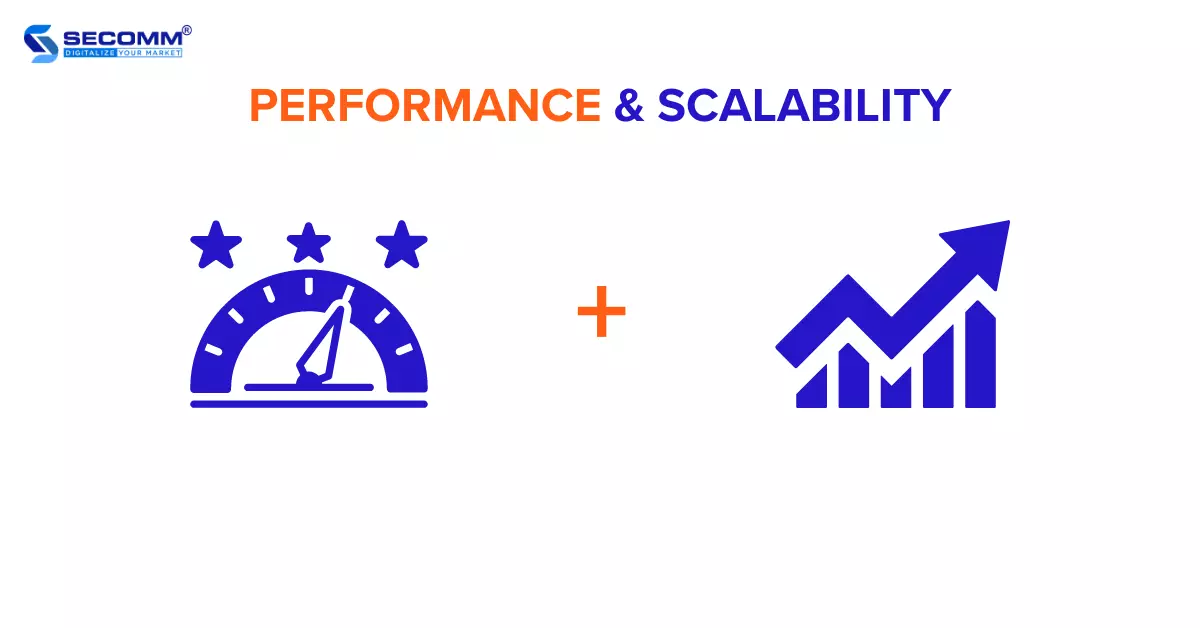
Flexibility & Customizability
Alongside performance and scalability, customization capability holds great significance for any business pursuing a platform to deploy Headless eCommerce. Evaluating the platform’s flexibility in design and user experience becomes crucial, ensuring effortless customization of frontend to meet specific business needs.
Security
Security is of utmost importance for any eCommerce platform. When choosing, you must ensure the platform adheres to standard security measures, such as secure payment PCI DSS, SSL encryption, and more.
Analytics & Reporting
Data analytics and reporting play a vital role in optimizing eCommerce operations and making informed decisions. Therefore, you should seek a platform with powerful analytics and reporting capabilities to provide comprehensive insights into customer behavior, sales effectiveness, conversion rates, and other essential metrics.
Customer Support
Opting for a Headless eCommerce development on a platform that provides valuable support resources like developer documentation, forums, and support communities, or responsive customer service directly from the platform, can bring significant benefits. You should ensure they have access to necessary assistance throughout the entire implementation process.
Total Cost of Ownership
Ultimately, the cost is a determining factor for any eCommerce business’s choice. These costs may encompass licensing fees, hosting, development, maintenance, or integration expenses with third-party services. You must assess these costs in relation to the platform’s capabilities, ensuring they align with your budget and long-term business goals.
By considering these criteria, you can select an appropriate Headless eCommerce platform that meets their business needs, provides a seamless customer experience, and supports their long-term growth objectives.
The Best 4 Platforms for Headless eCommerce Development
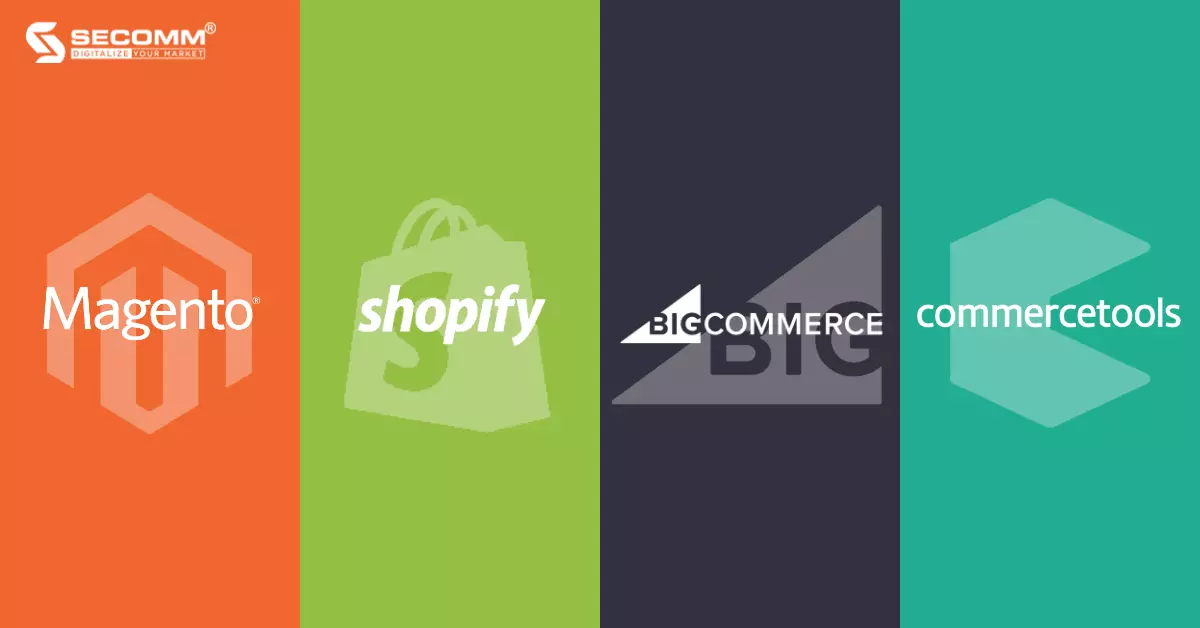
Magento (Adobe Commerce)
Magento is renowned as the world’s leading open-source eCommerce platform and currently ranks third in the market share among eCommerce platforms, following WooCommerce and Shopify
Magento has 2 editions:
- Magento Open Source: a free-to-use edition, but users still need to pay for hosting, domain, extensions, and development fees when hiring specialized Magento developers.
- Adobe Commerce: a paid edition with superior eCommerce solutions, suitable for large businesses with high development and expansion needs. It includes 2 versions: Adobe Commerce on-premise and Adobe Commerce on-cloud.
Pros
- Being open-source allows you to have complete control over the source code and infrastructure.
- With high flexibility and strong customization capabilities, it meets the needs of complex eCommerce requirements.
- Its excellent scalability is suitable for large-scale business operations.
- The powerful multi-store support enables seamless management of numerous stores across various locations from a single admin panel.
- Unified APIs and technologies across all channels enhance Omnichannel capabilities.
- From fundamental to advanced features, with a wide range of available extensions and integrations, it optimizes eCommerce functionality.
- Magento supports the creation of Progressive Web Apps (PWAs) with PWA Studio features
Related Reading: What is PWA? 4 Key Benefits of Developing PWA
Cons
- Complex development, security, and maintenance processes necessitate extensive technical expertise.
- High development costs and lengthy development timelines.
Shopify Plus
Shopify stands out as a leading SaaS eCommerce platform in the market, boasting over 3.75 million active stores in 2022.
Presently, Shopify provides two main editions:
- Shopify: Including standard packages (Basic, Shopify, Advanced) with different fees and features, catering to the requirements of small and medium-sized businesses.
- Shopify Plus: A comprehensive eCommerce solution at reasonable costs, tailored for medium to large enterprises, equipped with advanced features and tools to optimize business operations.
Pros
- The platform is designed to be user-friendly and accessible even for non-technical users.
- It boasts impressive performance and scalability, effortlessly handling high web traffic and numerous transactions.
- With the GraphQL Storefront API, you can deliver unique customer experiences across various channels like websites, mobile apps, and IoT devices.
- The Shopify App Store offers a wide range of powerful applications, extensions, and integrations exclusively tailored for Shopify Plus.
- Customizing the frontend is made simple with a user-friendly visual editor and direct code access.
- It facilitates omnichannel sales and automates eCommerce processes, resulting in operational resource savings.
- It seamlessly integrates with various third-party tools and systems, including ERP, CRM, CMS, and more.
Cons
- The customization capabilities of Shopify Plus are good, but they still cannot be compared with open-source platforms. For example, regarding payment gateways, it only allows integration with Shopify’s partner gateways such as PayPal, 2Checkout, PayDollar, Skrill, etc. Businesses aren’t permitted to integrate with other gateways outside this list.
- The eCommerce data of businesses using Shopify Plus is locked into Shopify Plus’s database. This dependency poses risks from the provider (Shopify Plus) and limits the business’s ability to access its entire data.
- While Shopify Plus supports creating multiple stores alongside the main store, compared to Adobe Commerce, the capabilities of Shopify Plus are somewhat limited. The platform restricts the number of stores and locations businesses can add, and businesses cannot manage multiple stores within the same Shopify Plus account.
- The cost is not fixed and increases based on revenue, development, and integration needs.
Usage cost: Starts from $2,000/month and increases based on revenue.
Related Reading: What is Shopify Plus? The Pros and Cons of Shopify Plus
BigCommerce Enterprise
Similar to Shopify, BigCommerce is also one of the leading SaaS eCommerce platforms with notable features that help businesses establish a fast and easy online presence.
The BigCommerce Enterprise edition serves large-scale enterprises with various optimized business operation solutions. Among them, the BigCommerce Headless eCommerce solution stands out, enabling businesses to create a consistent customer experience along with many other supportive solutions that ensure quick website launch and easy customization.
2.3.1 Pros
- An easy-to-use and intuitive platform.
- A powerful API architecture for building custom user interface solutions to meet complex requirements.
- Create and manage multiple headless storefronts within a single dashboard.
- High scalability and fast web performance.
- Robust Headless features that can integrate with frontend frameworks (Next.js, Gatsby.js, and Nuxt.js), CMS, DXP, ORM, etc.
- Capable of handling up to 600 SKUs per product.
- Drive omnichannel sales.
- Excellent support for building PWAs
2.3.2 Cons
- Similar to Shopify Plus, the customization capabilities of BigCommerce Enterprise are good, but still cannot be compared with Open-Source platforms.
- There are limitations in controlling the backend infrastructure and accessing the database.
- The payment process still utilizes the BigCommerce domain, leading to authentication and security issues.
- High deployment costs.
Usage cost: Starts from $400/month and can go up to $20,000/month
commercetools
commercetools is a pioneering platform for Headless eCommerce worldwide. Developed based on MACH principles (Microservice-based, API-first, Cloud-native, and Headless), Commercetools supports businesses in building and customizing eCommerce solutions tailored to their needs and their customers’ needs.
Pros
- High scalability and customization capabilities.
- Drive omnichannel sales.
- Powerful features and functionalities: category management, unified shopping cart, order management, machine learning, etc.
- Pre-built building blocks enable businesses to create their own backend structure.
- The API-first approach promotes flexibility and scalability, optimizing development time and ensuring compatibility between functionalities.
- Free 60-day trial.
Cons
- Requires technical expertise and experience for development.
- Limited advanced features for large enterprises, requiring specific custom development.
- Smaller user base and community support compared to more established platforms, making it challenging to find assistance.
- The initial development cost with Commercetools is quite high and depends on annual revenue, integration needs, scalability, etc.
Usage cost: The pricing is not publicly available, and businesses need to contact Commercetools for further discussion. However, here are some reference points. The implementation cost starts from $300,000, and the licensing fee begins at $200,000 per year.
With extensive experience in advising platform selection and supporting eCommerce implementation for numerous businesses worldwide, SECOMM always emphasizes that choosing the right platform is the first step towards success.
Contact SECOMM or call directly at the hotline number (02871089908) now for a free consultation.
 2
2

 8,635
8,635

 0
0

 1
1



